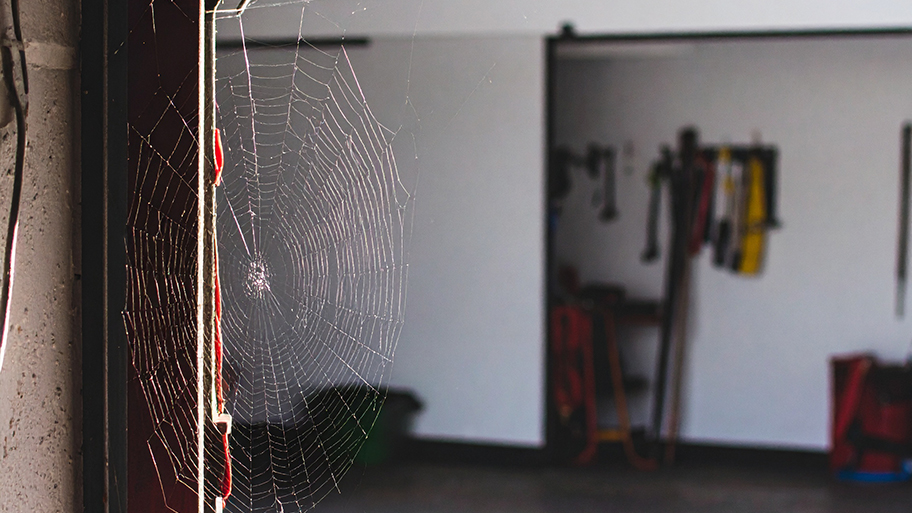
Your mosquito misting system cost will vary based on factors such as the size, type, brand, and more. Find out what the budget for this system looks like.
These spiders are similar, but neither is as scary as you think


Cellar spiders are commonly mistaken for brown recluse due to their violin-shaped markings
Cellar spiders have longer legs and a paler color and prey on other insects
While brown recluse can bite humans, they rarely ever do
Many of us jump with fear when we see a spider, but the truth is, they’re not as scary as humans (and horror movies) perceive them to be. In fact, they’re one of the most important animals in our ecosystem. Thanks to their size, it’s easy to get different arachnid species mixed up, and one of the most common victims of this confusion is the cellar spider versus the brown recluse.
By knowing why these spiders are totally different, you can make calm, logical decisions if and when you ever encounter them.

The brown recluse spider is brown and about the size of a quarter with its legs extended. They have two features they’re most known for: the lack of hair on their legs (rare for spiders) and a violin-shaped marking on their heads.
But the violin-shaped marking isn’t as distinct as people think and shouldn’t be the only determination of whether a spider is a brown recluse. That’s because cellar spiders have a similar violin marking in the same place, while they are very different kinds of spiders. Cellar spiders have long, thin legs and are gray, pale yellow, or light brown. They’re closer to the typical “daddy long legs” harvestman spiders that you’ve already seen plenty of.
The brown recluse spider is known as a dangerous species for its ability to bite humans, but those bites are not as common as people tend to think. This species of spider will only bite if they feel physically pressured. A study by the University of California, Riverside found that a family living in a house full of over 2,000 brown recluses for six months never had a single bite. More often than not, other illnesses, like MERSA and staph infections, are misdiagnosed as spider bites by doctors.
If you do happen to get a bite from a brown recluse, there are some medical precautions you should take. Clean the area, seek medical assistance, and monitor the bite for swelling, infection, or necrotic lesions. But don’t worry, according to medical research from UC Riverside, 90% of brown recluse bites will heal without scarring.
As for cellar spiders, while they do bite, it wouldn’t affect a human. Their venom would cause no problems, and their teeth are too weak to break the skin. A cellar spider mainly bites to catch prey and would rarely, if ever, want to bite a human.

A brown recluse spider spends most of its time in dark, secluded places—it is called a “recluse,” after all! You’re more likely to find a brown recluse in dry, dark areas like a basement or beneath furniture.
On the other hand, cellar spiders align with our traditional understanding of spiders: they make webs anywhere they can easily trap their prey (smaller insects). That means corners of cellars, basements, and garages.
First, remain calm and keep your hands to yourself. Remember that you’re much larger and more likely to threaten the spider than vice versa.
The only safe way to kill a brown recluse spider is to set glue traps around your home. Put some where you saw the spider and other spider-friendly places, like behind furniture, near warm areas like a water heater, and under your bed.
If you think you might have an infestation, it’s probably time to call an exterminator to get their guidance. The cost of a spider exterminator is worth it for your peace of mind and safety.
Any spider will be looking for warmth and food, and your home provides them access to plenty of it. They’re attracted explicitly to dark, damp spots and materials like wood and cardboard.
Be careful not to leave food in the open, and keep areas clean and tidy around your house. If there’s even a mess that attracts smaller insects, those small insects are prey that attract spiders to your home. If you want to prevent spiders from coming into your home, leave out your own natural spider repellent to ward them off.
From average costs to expert advice, get all the answers you need to get your job done.

Your mosquito misting system cost will vary based on factors such as the size, type, brand, and more. Find out what the budget for this system looks like.

How much does bee removal cost? Learn what you’ll pay based on factors like hive location, size of the infestation, extermination or removal, and more.

It’s important to know bed bug treatment costs if you have an infestation. Our guide covers different treatment methods and cost factors to eliminate these pests.

Need to get rid of pesky pantry bugs from your kitchen? Follow our step-by-step guide to learn more.

Taking on a flea infestation means destroying the source—their eggs. In addition to calling the pros, there are some DIY tricks for how to get rid of flea eggs.

Is it a common house spider or a brown recluse? Learn how to identify a brown recluse spider so you know how to handle it.